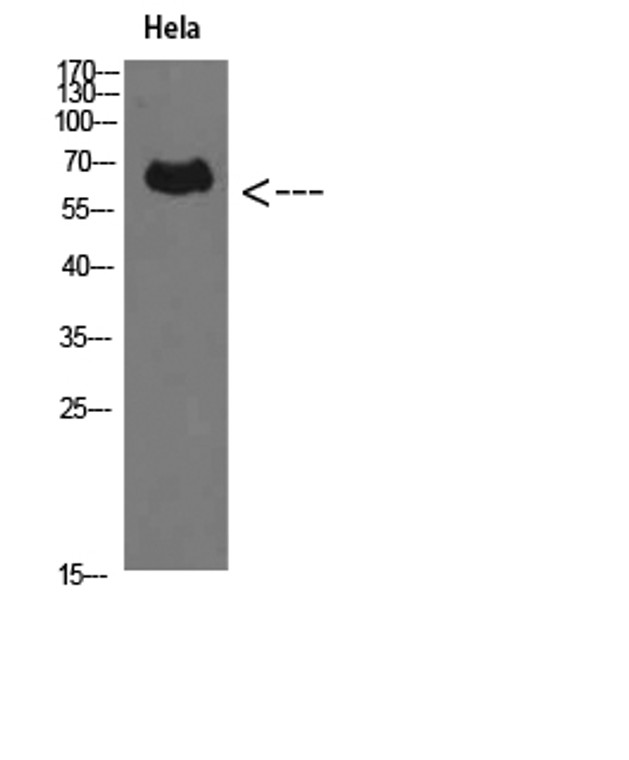| Host: |
Rabbit |
| Applications: |
WB/IHC/ELISA |
| Reactivity: |
Human/Rat/Mouse |
| Note: |
STRICTLY FOR FURTHER SCIENTIFIC RESEARCH USE ONLY (RUO). MUST NOT TO BE USED IN DIAGNOSTIC OR THERAPEUTIC APPLICATIONS. |
| Short Description: |
Rabbit polyclonal antibody anti-Perforin-1 (451-500 aa) is suitable for use in Western Blot, Immunohistochemistry and ELISA research applications. |
| Clonality: |
Polyclonal |
| Conjugation: |
Unconjugated |
| Isotype: |
IgG |
| Formulation: |
Liquid in PBS containing 50% Glycerol, 0.5% BSA and 0.02% Sodium Azide. |
| Purification: |
The antibody was affinity-purified from rabbit antiserum by affinity-chromatography using epitope-specific immunogen. |
| Concentration: |
1 mg/mL |
| Dilution Range: |
WB 1:500-2000IHC 1:50-200ELISA 1:10000-20000 |
| Storage Instruction: |
Store at-20°C for up to 1 year from the date of receipt, and avoid repeat freeze-thaw cycles. |
| Gene Symbol: |
PRF1 |
| Gene ID: |
5551 |
| Uniprot ID: |
PERF_HUMAN |
| Immunogen Region: |
451-500 aa |
| Specificity: |
Perforin 1 Polyclonal Antibody detects endogenous levels of Perforin 1 |
| Immunogen: |
The antiserum was produced against synthesized peptide derived from the C-terminal region of human PRF1 at the amino acid range 451-500 |
| Function | Pore-forming protein that plays a key role in granzyme-mediated programmed cell death, and in defense against virus-infected or neoplastic cells. Plays an important role in killing other cells that are recognized as non-self by the immune system, e.g. in transplant rejection or some forms of autoimmune disease. Can insert into the membrane of target cells in its calcium-bound form, oligomerize and form large pores. Promotes cytolysis and apoptosis of target cells by mediating the passage and uptake of cytotoxic granzymes. Facilitates the delivery of cationic cargo protein, while anionic or neural proteins are not delivered efficiently. Perforin pores allow the release of mature caspase-7 (CASP7) into the extracellular milieu. |
| Protein Name | Perforin-1P1CytolysinLymphocyte Pore-Forming ProteinPfp |
| Cellular Localisation | Cytolytic GranuleSecretedCell MembraneMulti-Pass Membrane ProteinEndosome LumenStored In Cytolytic Granules Of Cytolytic T-Lymphocytes And Secreted Into The Cleft Between T-Lymphocyte And Target CellInserts Into The Cell Membrane Of Target Cells And Forms PoresMembrane Insertion And Pore Formation Requires A Major Conformation ChangeMay Be Taken Up Via Endocytosis Involving Clathrin-Coated Vesicles And Accumulate In A First Time In Large Early Endosomes |
| Alternative Antibody Names | Anti-Perforin-1 antibodyAnti-P1 antibodyAnti-Cytolysin antibodyAnti-Lymphocyte Pore-Forming Protein antibodyAnti-Pfp antibodyAnti-PRF1 antibodyAnti-PFP antibody |
Information sourced from Uniprot.org
12 months for antibodies. 6 months for ELISA Kits. Please see website T&Cs for further guidance











